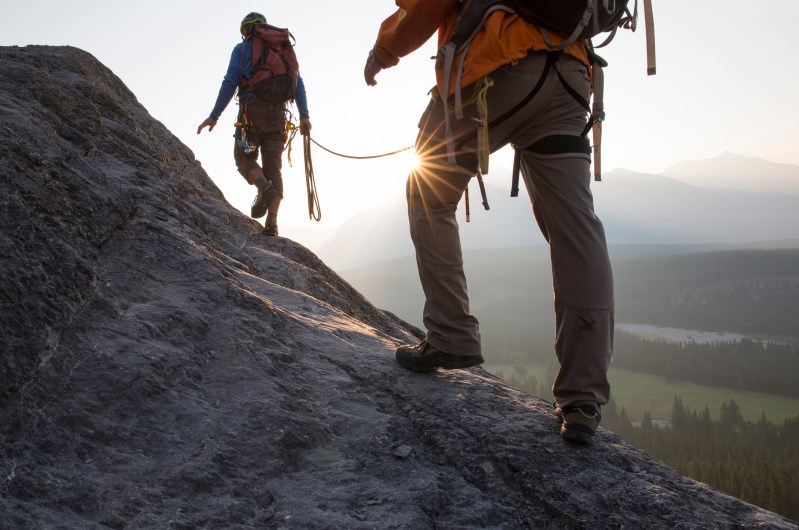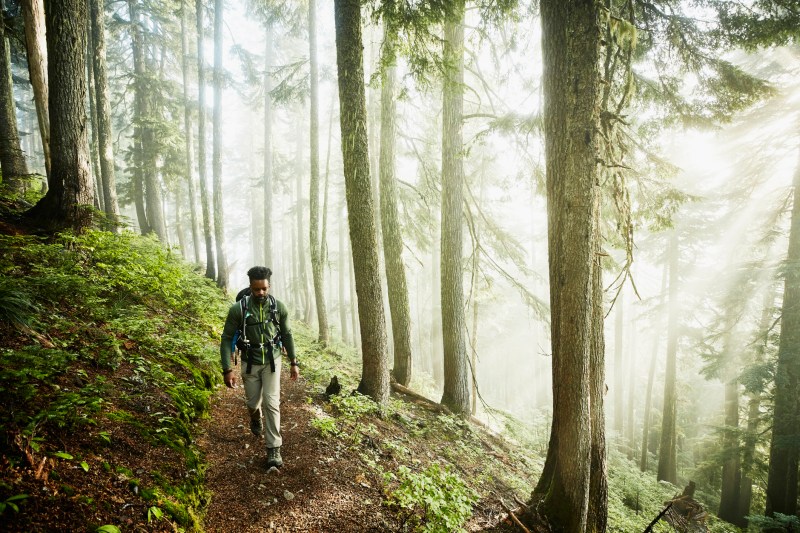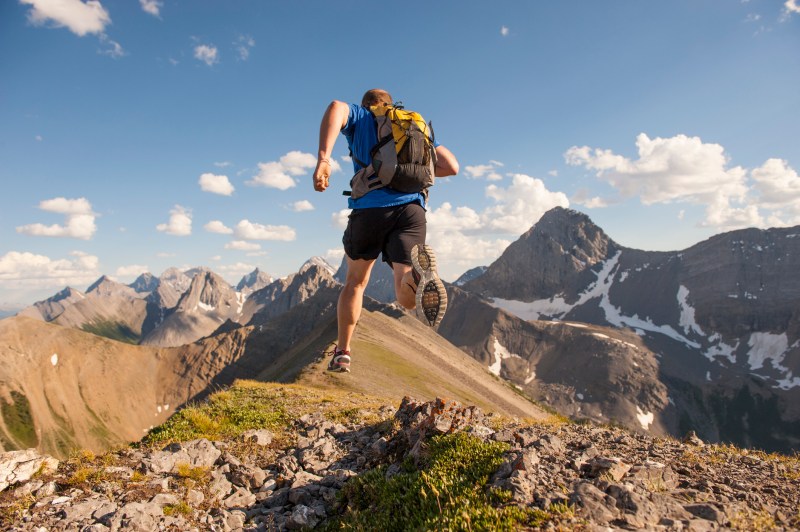
Hiking is one of the most popular forms of exercise in the U.S. However, it’s more than just a full-body workout; it’s also an excellent opportunity to spend time in nature, clear your mind, and improve your sense of well-being. In addition, hiking is a fully adjustable workout, and you can start on an easy trail and work your way up to full-blown mountain hiking no matter how long your progress takes!
It’s an activity that can be done just about anywhere. Because the prime hiking season in the national parks around the U.S. varies based on climate and affordability, you can easily adjust your hiking plans to match the seasons and see some beautiful areas throughout the country. It’s a great way to meet nature at its level and a perfect excuse to shut out the noise of the modern world.

8 reasons you should hike often
1. Full-body conditioning
Research shows that by moving your largest muscle groups in challenging ways while hiking, you’re pushing your heart and lungs to work harder and become stronger with every step. This can help stave off conditions such as heart disease, high blood pressure, obesity, and diabetes. Burning calories by hiking is a great way to lose excess weight and build muscle tone, too.
And an attractive side benefit of keeping active on hiking trails is reducing the effects of arthritis and osteoporosis. By keeping your joints agile and increasing bone density, you’re preventing the negative impact of remaining sedentary without risking injuries that higher-impact exercise might cause. And, of course, increasing blood flow and breathing through even moderate hiking elevates your mood and alleviates anxiety. It’s good for literally every part of your body!
2. Lower body strength
Hiking activates your legs and spine for a lower body workout unlike any other. The result of all your trailblazing? Stronger quads, hamstrings, glutes, and a stabilized lower back make you better prepared for even more hiking. Increased balance and reflexes are added bonuses that ensure your hiking benefits carry into your day-to-day life even when you’re not hiking.
You’ll notice more ease when taking the stairs, improved lifting ability, and added power for other lower body activities. You can even find trails that maximize your leg training with incline areas for an added challenge.
3. Memory and brain function
As mentioned above, hiking increases your blood flow, which helps deliver more oxygen and essential nutrients to your brain cells, keeping them healthy and functioning optimally. Hiking also boosts the brain-derived neurotrophic factor (BDNF). Exercise stimulates the production of BDNF, a protein that plays a vital role in the growth and survival of brain cells. BDNF is particularly important for the hippocampus, the part of the brain responsible for memory and learning.
The brain has a remarkable ability to adapt and change, known as neuroplasticity. Hiking, especially when it involves new trails or challenging your navigational skills, can stimulate neuroplasticity, which helps your brain form new connections and improve cognitive function.
4. Sunshine and fresh air
Nothing beats exercising in the sunlight while breathing in fresh air. When exposed to sunlight, your skin creates much-needed vitamin D. Sunlight exposure also releases serotonin, which is a feel-good brain chemical that helps you feel calm and stay focused. It also helps balance your circadian rhythms, leading to improved sleep.
Combine all of these sun-centric benefits with an hour or two spent breathing clean air, and you have a recipe for good health and improved well-being that brings you the best of what hiking can offer. However, a note of caution — even with the benefit of vitamin D production working in your favor, remember to use sunscreen when hiking to minimize the harmful effects of sun exposure.
5. Exposure to nature
Beyond the physical benefits hiking offers, being surrounded by a natural environment is enriching to your overall quality of life. Taking time away from urban and suburban areas and recommitting yourself to moments spent among towering trees, majestic mountains, and refreshing forests reminds us of how deeply our roots lie in nature.
Depending on the trails you choose, you can watch wildlife as it comes and goes from its habitats, find hidden photo-worthy nature views tucked around every corner, and remind yourself of the never-ending beauty that surrounds you. Moving about within these environments re-establishes your place among the natural world in a way that few other outdoor activities can.
6. Mental calming
Studies have proven that being in nature positively impacts mental health. The change of environment, the return to natural sounds and rhythms, and the immersion among the elements help quiet the mental noise and bring about a sense of well-being that indoor activities can’t match.
There are sights and sounds that provide gentler rhythms your autonomic nervous system can sync up with; the result is a sense of well-being that’s fed by the endorphin rush of exercise and sun-released serotonin. Put them all together, and you have a formula for happiness that will put hiking at the top of your list of favorite exercises.
7. Social interaction
Finding others who love hiking as much as you can add an element of much-needed social interaction to your weekly routine. Having a friend or two along on your hikes or joining a hiking team not only gives you someone to share your experiences with, but it also helps you build connections in a natural environment that tends to be different than other settings. Experiencing nature with others is an added bonding opportunity that many people discover when they expand their hiking circle to include fellow hikers with an equal love of outdoor activities.
8. Scalability
Because hiking in its most basic form involves nothing but walking, you can scale your hiking excursions to be as simple or complex as your physical abilities and your sense of adventure dictate. Whether you’re walking a simple paved trail through a wooded area in a local greenspace or planning a multi-day trek through a national park, all options are valid.
Once you’ve mastered simpler hikes, you can slowly build up by finding new trails to explore, challenging yourself with every next path. Be aware of limitations that can’t be overcome, such as pre-existing heart, lung, or circulatory conditions and injured limbs or joints. It is always important to consult with a physician as you expand your hiking activities.

Tips for preparing for your hike
Because hiking takes place in an outdoor setting where conditions can be unpredictable, make sure you do the following when preparing for your hike:
- Research and map out your hike before you set out to make sure you know where the trailheads are, the entire length of your route, and the difficulty level.
- Bring a fully charged cell phone and always let someone know where you’re going and approximately how long you’ll be gone in case you have any sort of emergency on the trail.
- Protect your skin from harmful overexposure to the sun by using sunscreen with an SPF of 30 or higher and reapply as needed
- Choose the proper boots, insoles (if needed), and clothing for the climate and terrain you’ll be hiking in, and remember to dress in layers so you can adjust for comfort and cover as the temperature changes.
- Stretch your legs and back for 10 to 15 minutes before heading out to get your muscles warm and loosened up.
- Bring healthy snacks along for replenishing your energy reserves and drink water or workout drinks with added electrolytes frequently while on the trail to avoid becoming dehydrated.

How to pick the best hiking trails
Choosing the best trails for your hiking pursuits means you have a wide variety of terrain and locales to choose from, whether it be a local park or a destination hiking spot across the country. Make sure you research the trails you intend to hike before setting out. If a nature experience is key on your list of benefits, follow the weather and look for scenic trails that highlight wildlife, greenery, and seasonal attractions.
National parks are incredible environments custom-maintained for great hiking; if there’s one in your area, look into hours, necessary permits, and pricing. You may find worthwhile seasonal or holiday discounts, too. Once you’ve chosen your trail, make sure you download or print out maps and routes to follow. And be sure to verify the difficulty level of the trails you’ll be wandering to get the most benefit possible out of your hiking adventures.

How to get motivated for a hike
Hiking tends to inspire a dedicated response in people who make it a regular part of their wellness routines. You are your only competition, and the more you participate, the more you’ll improve and surprise yourself with how much you can accomplish. And because the basics require no equipment other than the right shoes or boots for your chosen terrain, hiking is an activity that’s available for literally everyone, no matter their age.
Get your friends and family in on the action to expand the fun, or look into local hiking groups that can help you feel a sense of community as you hike. Even if you go it alone, remember that if you can walk, you can hike…and if you can hike, you can gradually become a better hiker and climb to greater heights whenever you’re ready!



